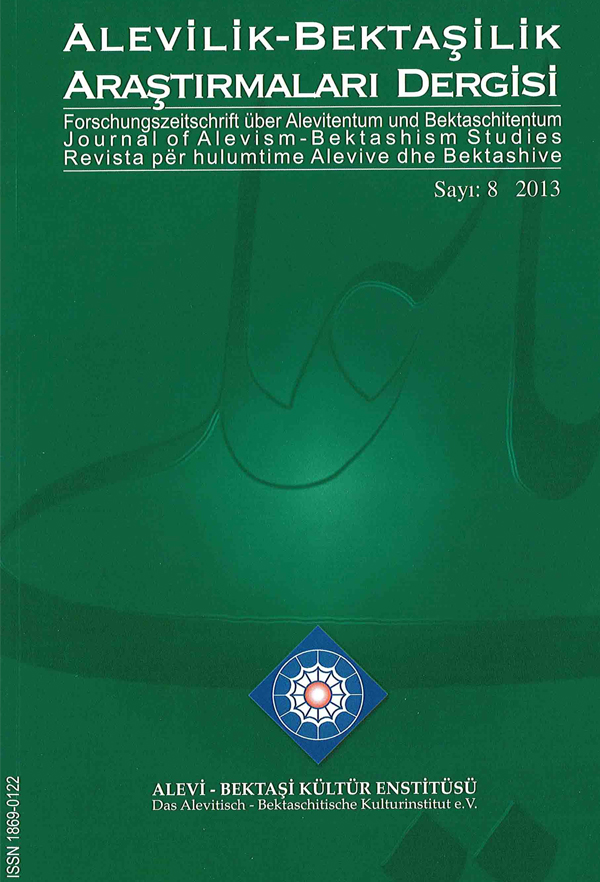Baba Syrgiannes - Baba Saruca, Saltuk Et-Turki Or So Called Sari Saltik
DOI:
https://doi.org/10.24082/abked.2013.08.006Schlagworte:
Sarı Saltık, Baba Saltık, Saltuk et-Türki, Sytzigan, Syrgiannes, Baba Saruca, Saronius, Dobruca, Deşt-i Kıpçak, Kuman, Kıpçak, Haydari, Rufai, Karmati, İsmailiAbstract
SarıSaltık'lailgiliçalışmalartemelde,SaltıknameveHacıBektaşVeliVelayetnamesi gibi menkıbevi eserlerdeki bilgiler ile Yazıcızade Ali'nin Selçuknamesi'nde yer alan ancak hiçbir çağdaş kaynak ya da belge ile doğrulanamayan bilgilere dayandırılmaktadır. Oysa ki dönemin çağdaşı eserlerden hareketle Sarı Saltık'ın tarihsel kimliğini çözümlemek mümkündür. Malum paradigmaları bir tarafa bırakıp, hiçbir şey bilmiyormuşçasına yani yeni baştan okumalarla ve çağdaş kaynaklara müracaat ederek, Sarı Saltık'ın tarihsel kimliği ortaya konmaya çalışılmıştır. Bu bağlamda Sarı Saltık, düşünüldüğü gibi aslında Anadolulu bir eren olmadığı, sadece olasılıklar düzlemi içinde, bir süreliğine Anadolu'da yaşamış, aslen Kuman/Kıpçak kökenli bir aileden gelen ve Deşt-i Kıpçak/Dobruca'lı olduğu ortaya konmuştur. Rum kroniklerinde, bozuk bir ifadeyle/onomastikle karşımıza çıktığı, ancak aslında, bu ifadenin Türkçe bir isim olduğu sonucuna varılmıştır. Nitekim Rum Kronikleri'nde ilgili şahsın, apaçık şekilde bir Türk (Kuman) olduğu söylenmektedir. Yani ismi de Türkçe'dir. Sarı Saltık'ın doğum yeri, doğum tarihi, vefat yılı ve vefat ettiği yer konusuna netlik kazandırılmıştır. Ayrıca sanıldığından farklı olarak, Alevi meşrep Batini İslami bir ekol olan Karmati-İsmaili anlayışıyla irtibatlı bir eren olduğu, ancak bununla birlikte ve bir şekilde, Haydari ve/veya Rufai tarikatlarından da etkilenmiş olabileceğine yönelik bulgular ortaya konmuştur.
Downloads
Downloads
Veröffentlicht
Zitationsvorschlag
Ausgabe
Rubrik
Lizenz
Copyright (c) 2013 Forschungszeitschrift über Alevitentum und Bektaschitentum

Dieses Werk steht unter der Lizenz Creative Commons Namensnennung - Nicht-kommerziell - Keine Bearbeitungen 4.0 International.








